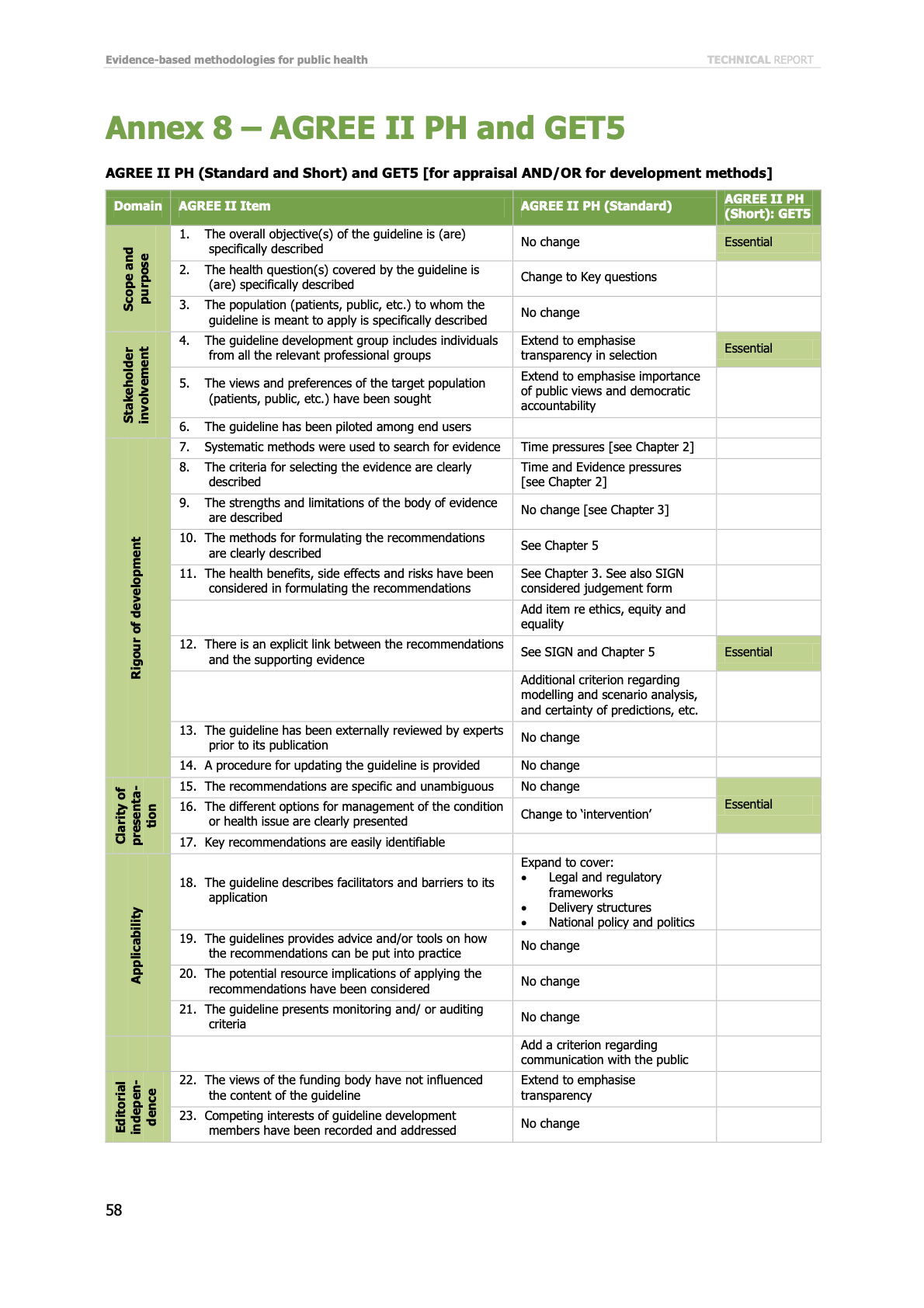-
-
Home -
Repositories
-
The Registry of Methods and Tools for Evidence-Informed Decision Making -
Methods and Tools for Organizational Change - Health Evidence™
-
Repository of Public Health Evidence Syntheses
-
-
Training
-
Videos -
Evidence-Informed Decision-Making Competence Measure -
Learning Needs Assessment for Evidence-Informed Decision Making -
Online Learning Modules -
University-Certified Learning Module Program -
Webinars -
Workshops -
Knowledge Broker Mentoring Program KB Mentoring Impact -
Knowledge Broker Virtual Office Hours
-
-
Tools
-
Evidence-Informed Decision Making in Public Health -
6S Search Pyramid -
Anatomy of a Systematic Review -
Rapid Review Guidebook -
EvSyS: The Evidence Synthesis Selection Tool for Decision Makers -
Algorithm for Classifying the Study Design of Primary Studies -
Quality Assessment of Community Evidence (QACE) Tools -
Resource Planning and Assessment (RPA) Tool -
Assessing Applicability and Transferability of Evidence Tool (A&T Tool) -
Core Competency Tool -
Mental Health Resources for Healthcare Workers
-
- Rapid Evidence Service
-
Impact
-
Evidence-Informed Decision Making Casebook -
Impact of the Knowledge Broker Mentoring Program -
Why It Matters -
NCCMT Publications -
User Stories -
Outreach -
KT Student Awards
-
-
About Us
-
About the NCCMT -
Our Funder -
Our Host Institution -
The National Collaborating Centres -
Team Members -
Advisory Group Members -
Students - COVID-19 Evidence Network to support Decision-making (COVID-END)
-
Contact Us
-
-



